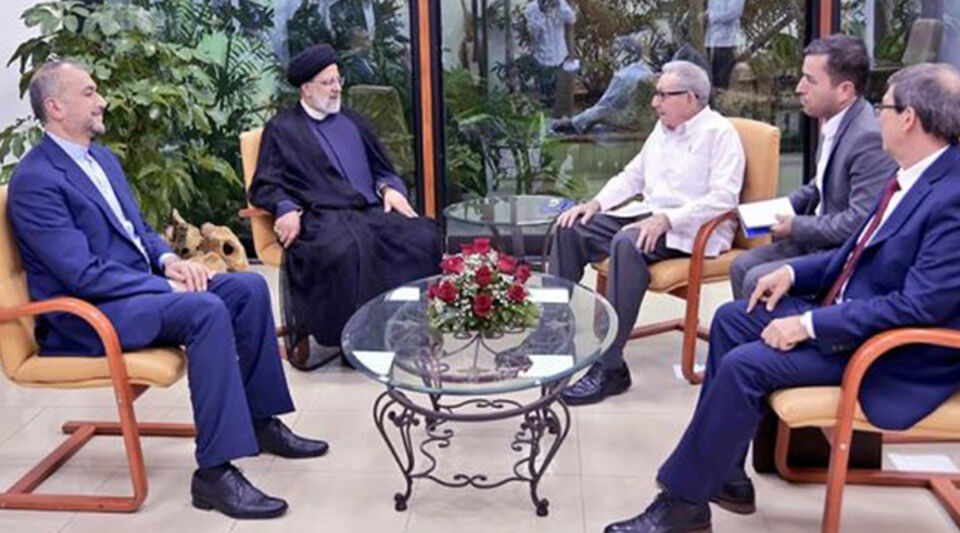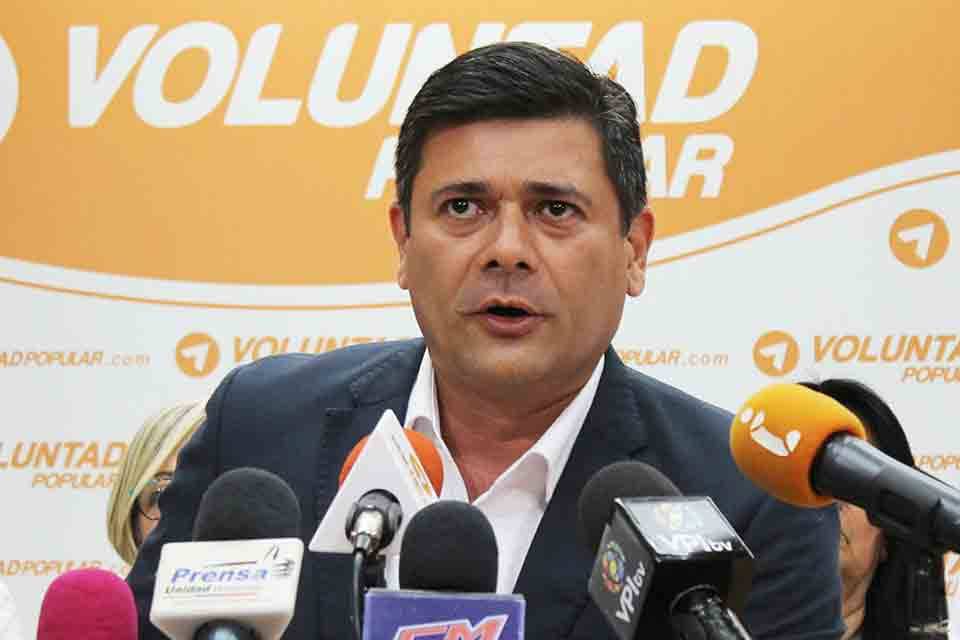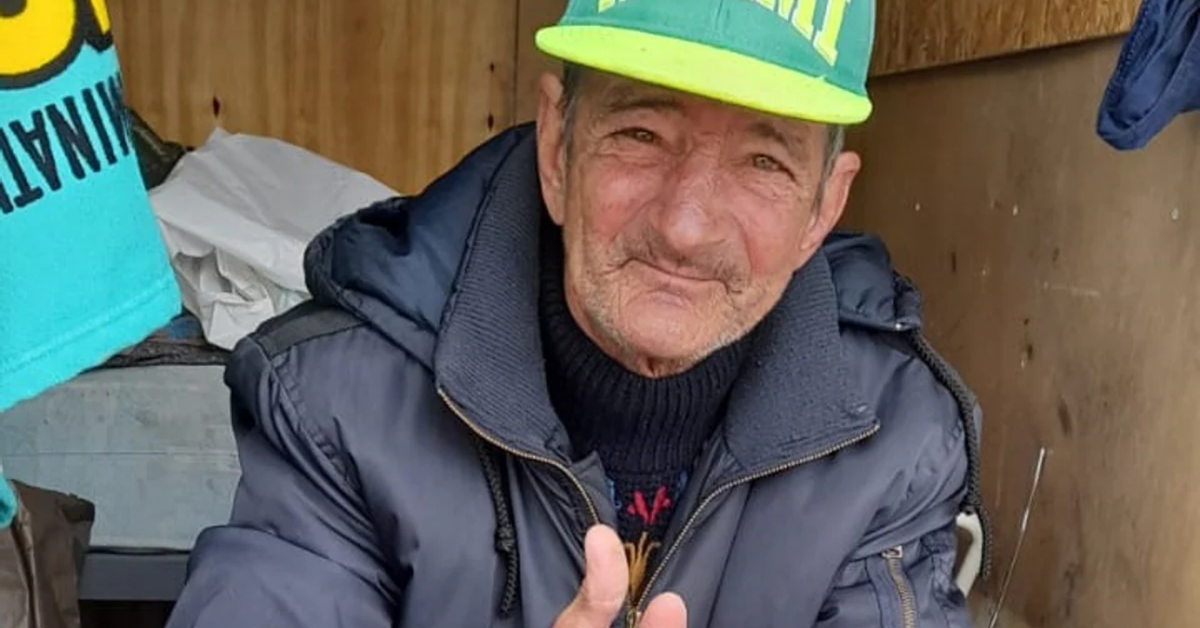(EFE) economic and commercial.
The tour, described as “strategic” by Tehran and widely publicized by the hosts, tried to strengthen ties between these countries, on which heavy sanctions from Washington weigh, at times of political and economic difficulties for these four partners with a very different profile.
Caracas, where the Persian president was received with honors on Monday, was the starting point of Raisi’s first visit to Latin America since he assumed the Iranian presidency, in August 2021.
The objective of the trip, beyond the numerous cooperation agreements reached and the repeated public displays of friendship, served to warn the detractors of the three Latin American governments -especially the United States- that the leftist trio has a strong ally, willing to to defend interests in any scenario.
Like Venezuela, Nicaragua and Cuba, Iran is burdened with numerous sanctions imposed by various countries, especially the US, which has caused blockades and impediments to, among other things, doing business with nations that were positioned on the opposite side.
During his time in Caracas, he also rejected the use of the US dollar and urged to work on the search for formulas that make it possible to do without the currency to carry out transactions.
The coercive measures and the problems derived from them were, precisely, one of the issues that occupied a large part of the speeches and interventions of Raisi and his interlocutors at the three stops, in which he did not miss the slightest opportunity to reiterate his rejection. front of American politics.
During his time in Caracas, he also rejected the use of the US dollar and urged work to find formulas that would make it possible to do without currency to carry out commercial transactions and exchanges, as one of the premises for the “new international order”. for which the president advocates.
Raisi’s anti-imperialist demonstrations were seconded by the respective Latin American leaders, who took advantage of their counterpart’s visit to puff up their chests and remember that, despite the attacks and blockades by their enemies, they have resisted, thanks to the support of their allies.
In this sense, during the visit of the Persian leader to Havana, the Cuban president, Miguel Díaz-Canel, recalled that “Venezuela, Nicaragua, Cuba and Iran are countries that have had to heroically face, with tenacious resistance, sanctions, threats , blockades and interference by Yankee imperialism”.
In Nicaragua, along with President Daniel Ortega, Raisi criticized that the US and “other Western nations that set themselves up as defenders of human rights, democracy and freedom, do not respect the will of the people and act against that will , as it happens in Palestine, Lebanon, Afghanistan, Iraq, Syria and other nations of Latin America”.
He also criticized “that imperialism, before, to impose its will on the countries, sent its armies to invade and, if it did not succeed through that strategy or coups d’état, it sought to destabilize the countries through economic sanctions. “.
In Venezuela, the Iranian president and his Venezuelan counterpart, Nicolás Maduro, signed a total of 25 agreements in various areas, such as petrochemicals, transportation, and mining, among others.
In addition, they signed a memorandum of understanding between the Oil portfolios of both countries, with which they hope to strengthen and expand the exploration and exploitation opportunities of the sector.
The Cuban president, who promised to travel to Tehran to return the visit, advocated “taking advantage of the potentialities” to deepen economic relations
According to Raisi said in Caracas, economic and commercial cooperation with Venezuela currently amounts to 3,000 million dollars, and the goal is to “achieve a commercial exchange” that reaches 20,000 million dollars.
In Cuba, at the political level, the signing in Havana of an “integral cooperation” agreement between both governments and another for the establishment of regular consultations between their foreign ministries stood out, which qualitatively increases the relationship between both Executives.
Bilateral agreements were also signed to cooperate in the areas of telecommunications, justice and customs matters.
The Cuban president, who promised to travel to Tehran to return the visit, advocated “taking advantage of the potential” to deepen economic relations and Raisi pointed out, in a closed-door business forum, that they would try to seek opportunities in electricity generation , biotechnology and mining.
While numerous agreements and memoranda were signed with Venezuela and Cuba, it is unknown if the same happened with Nicaragua, since, despite the fact that Vice President Rosario Murillo had announced that it would be so, the Ortega government did not make any signatures public.
However, Raisi promised, in the presence of the president, that they will increase and deepen cooperation with Nicaragua in science and technology and in other areas.
He also assured that relations with the Central American country “are not habitual, traditional relations, they are completely strategic relations.”
Among the areas that Tehran wants to “increase and deepen” its cooperation with Nicaragua are “political, economic, cultural, in all areas, especially in matters of science and technology.”
Venezuela, Cuba and Nicaragua have some of their main allies in Iran, a union that has been revealed when one of the Latin American countries has gone through moments of political tension or crisis and has received unconditional support from Tehran.
________________________
Collaborate with our work:
The team of 14ymedio He is committed to doing serious journalism that reflects the reality of deep Cuba. Thank you for accompanying us on this long road. We invite you to continue supporting us, but this time becoming a member of our newspaper. Together we can continue transforming journalism in Cuba.








